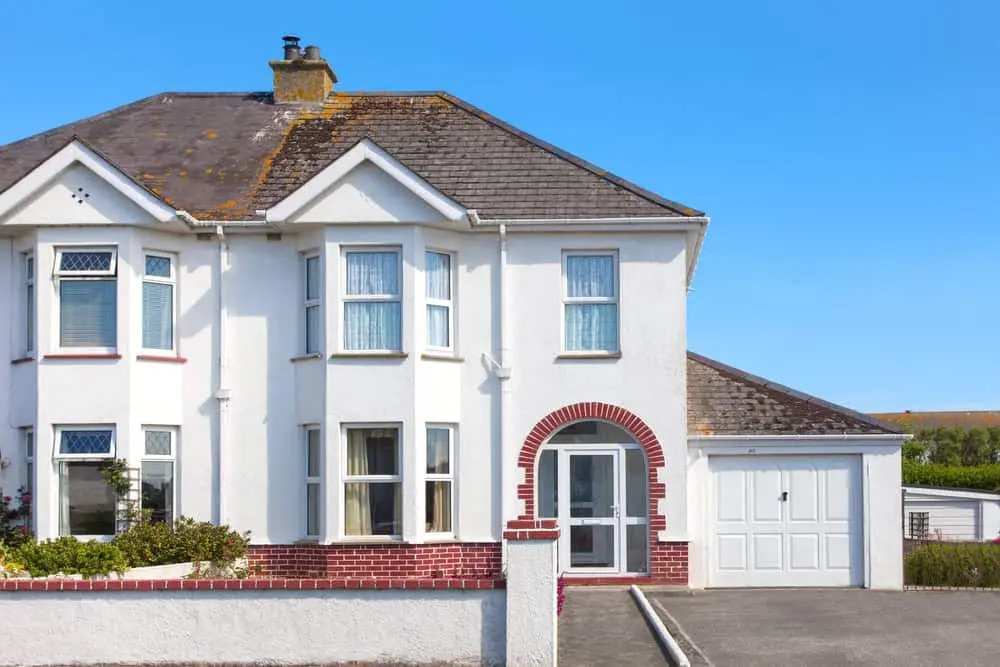
If you are an executor or probate professional responsible for insuring unoccupied property in probate, I know you have a lot to do and think about.
Extending the existing insurance arranged by the deceased may seem like the easiest way to protect an unoccupied property in probate, but it could expose executors to serious risks. However, it could have disastrous financial consequences for executors or administrators (if there is no Will). Arranging the right probate property insurance with a specialist like Insuristic can be quicker whilst reducing your risks.
Read on to find out more. Or visit our Probate House Insurance page to learn about the cover or get a quote.
Here is a quick summary of the risks you are about to read:
Gaps in Protection: You may only have "FLEEA" cover (Fire, Lightning, etc.), leaving you exposed to theft or water damage.
Onerous Conditions: You may not be used to the conditions in an unoccupied property insurance policy, which could open you to personal liability, e.g. missing a single 7-day property inspection could void your entire claim.
Personal Liability: If the claim is rejected due to a policy gap or because you underinsured the property, the beneficiaries can hold you personally liable for the shortfall.
Executors or administrators could have substantial personal liability if the insurance is improperly arranged. For example, if inadequate cover is purchased, there are gaps in cover, claims aren’t covered, or the property is underinsured, it could result in a significant shortfall when calculating a claim value.
This is more likely to occur with an extended standard home insurance policy, as these policies aren’t typically designed for unoccupied probate property. Existing home insurers may not want to continue covering the property while it is empty. Still, if they do, they might restrict cover or impose policy conditions that are difficult to comply with, which could result in declined claims if you fail to follow them.
On this page, I’ll show you why standard coverage often fails executors responsible for unoccupied property in probate, and what to consider instead.
Unoccupied properties in probate face a perfect storm of challenges that standard home insurance policies aren’t built to handle.
That’s why a specialist policy, built for unoccupied property in probate, is essential as it protects the home and the personal representatives liabilities.
One of the most overlooked risks when insuring an unoccupied property in probate is the risk of restricted cover.
Because unoccupied properties pose a higher risk of claims, insurers are likely to offer less cover than for standard home insurance policies.
It is not uncommon for basic FLEEA insurance to be provided, which covers only claims caused by fire, lightning, explosion, earthquake, or aircraft.
This is a risk for executors or administrators because it would mean that common claims such as water escape, theft, and damage caused by break-ins wouldn’t be covered. Neither would less common but potentially significant claims, such as flood or subsidence.
If a claim is not covered that could have been under a more specialist insurance policy like that offered by Insuristic, the executors can be accused of negligence (even if you are a lay executor) and be forced to cover the uninsured costs of reinstating the property. Most people would not have the funds readily available to do this, so the consequences can be severe.
Underinsurance is a major hazard for unoccupied property in probate, especially when rebuild values aren’t updated.
This can be because people base insurance on market value (which isn’t the same as rebuild value), valuations haven’t been updated in years and since then, building costs have inflated, or property improvements have been made.
If the deceased underinsured their property, the executors or administrators are effectively taking on this liability by extending the existing insurance. As 8/10 properties in the UK are believed to be underinsured, this is a significant risk.
If underinsured, executors may face reduced or declined claims. To avoid this, executors should review existing insurance and if they are unsure of the cost to rebuild the property, either:
If you are like most people, you probably haven’t insured an empty property before. Policy conditions for an unoccupied property in probate can vary widely, especially if the insurer is unfamiliar with estate administration.
If the insurance provider isn’t a specialist, these policy conditions can be onerous and difficult to comply with. As I have said, this is a significant financial risk for executors. Failure to comply with policy conditions can result in rejected claims, with the executor or administrator left to foot the bill.
Policy conditions are usually reasonable, but they might be more restrictive than those of a specialist, so you should always check the policy wording before buying the cover to ensure you can comply. To reiterate my point: if you can’t provide evidence of compliance with a policy condition, claims are likely to be declined.
Examples of policy conditions that might be new to you are:
So, whilst these conditions aren’t a risk of extending the existing home insurance, they may not be apparent to you. Care must be taken to comply with these conditions to prevent uninsured losses.
Important: Some probate insurance policies will end when the Grant of Probate is received, so be sure to check for this, as you may find the property is suddenly no longer insured.
If Insuristic insures the property, this condition won’t catch you out, as we provide cover until the property is inherited, sold, or occupied.
You will only find out how good your insurance policy is when you come to make a claim, so be sure to check how the insurance provider handles claims before you buy a policy.
Many home insurance providers will require you to report claims directly to the insurer, and not all insurer claims services are equal. You might not get much support or advice during this process, and as a busy executor, this can be stressful and time-consuming.
Insuristic policyholders benefit from an in-house claims team that can provide advice and support at every stage. For claims where a loss adjuster is required, they will manage this process and deal directly with the insurer to achieve the best possible claims settlement for the estate.
It is becoming more common for empty property during probate to be occupied by future beneficiaries, family friends or paying tenants.
In this scenario, the existing home insurance provider is unlikely to continue to cover the property because the occupants would not have an insurable interest in it.
If the property is occupied by paying tenants, you will lead a landlord’s insurance policy that is insured in the name of the estate.
If people occupy the property without a tenancy agreement and/or charge, you are unlikely to be able to buy this cover online
If you need to insure the property is occupied during probate, click the button below to arrange a quote.
Insuristic has developed online policies specifically for unoccupied property in probate, helping executors avoid the coverage gaps and liability risks that come with standard home insurance.
Our policies benefit from our in-house claims service and zero policy or cancellation fees. This means that if you need to cancel the policy earlier than planned, you won’t be charged to cancel, and you will get a pro-rata refund representing the value of any unused cover.
If you are a lay executor or solicitor with the occasional policy to insure, check out our Probate House Insurance Page for details and to get a quote. A policy can usually be purchased online in two minutes or less.

Rob Faulkner is a leading expert in Probate Insurance, Probate Risk Management, Property Insurance (especially Unoccupied Home Insurance), with nearly 30 years’ experience in the UK insurance market. He is the founder of Insuristic, a specialist provider of probate-related insurance solutions and educational content for executors.
Rob is an ACII Chartered Insurance Broker, a Chartered Manager, and a Member of the Chartered Institute of Marketing. His background spans insurers, brokers, and Insurtechs, always focused on innovation, transparency, simplicity, and fair value.
Rob is passionate about product development and improving insurance education through marketing, helping people understand what they are buying. These values sit at the heart of everything we do at Insuristic.
His mission is to make Insurance smarter, easier to understand, and faster to buy. Particularly for the Probate market, where Rob has identified friction points and solved them for lay clients and solicitors alike.
Want to learn more? Visit my author page or follow me on LinkedIn.

Insuristic Limited is an Appointed Representative of SJL (Worcester) Ltd, who are authorised and regulated by the Financial Conduct Authority with the reference number 763599. This can be checked by visiting https://register.fca.org.uk/s/.
Registered Office: Unit 2, 262 Walsall Road, Cannock, England, WS11 0JL. Registered in England and Wales No: 13926650.
Insuristic is a registered trademark. ©Copyright 2023 Insuristic Limited. All Rights Reserved.
Please Note: Our broking team at SJL Insurance will need to talk to you to discuss your requirements. This is an advised service.
Please Note: Our broking team at SJL Insurance will need to talk to you to discuss your requirements. This is an advised service.
Please Note: Our broking team at SJL Insurance will need to talk to you to discuss your requirements. This is an advised service.
Please Note: Our broking team at SJL Insurance will need to talk to you to discuss your requirements. This is an advised service.
Please Note: Our broking team at SJL Insurance will need to talk to you to discuss your requirements. This is an advised service.
Please Note: Our broking team at SJL Insurance will need to talk to you to discuss your requirements. This is an advised service.